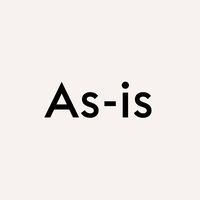Request Demo
Last update 27 Feb 2026
Gadopentetate Dimeglumine
Last update 27 Feb 2026
Overview
Basic Info
Drug Type Contrast agent, Small molecule drug |
Synonyms Dimeglumine Gadopentetate, Gadolinium diethylenetriamine pentaacetic acid, Gadolinium DTPA + [19] |
Target- |
Action- |
Mechanism- |
Therapeutic Areas |
Active Indication |
Inactive Indication |
Originator Organization |
Active Organization |
Inactive Organization |
License Organization- |
Drug Highest PhaseApproved |
First Approval Date United States (02 Jun 1988), |
Regulation- |
Login to view timeline
Structure/Sequence
Molecular FormulaC21H36GdN4O15 |
InChIKeyLZQIEMULHFPUQY-BMWGJIJESA-J |
CAS Registry86050-77-3 |
External Link
| KEGG | Wiki | ATC | Drug Bank |
|---|---|---|---|
| D01707 | Gadopentetate Dimeglumine |
R&D Status
Approved
10 top approved records. to view more data
Login
| Indication | Country/Location | Organization | Date |
|---|---|---|---|
| Contrast agents | United States | 02 Jun 1988 |
Developing
10 top R&D records. to view more data
Login
| Indication | Highest Phase | Country/Location | Organization | Date |
|---|---|---|---|---|
| Cardiovascular Abnormalities | Phase 3 | - | 01 Dec 2003 | |
| Constriction, Pathologic | Phase 3 | - | 01 Dec 2003 | |
| Renal Artery Stenosis | Phase 3 | - | 01 Dec 2003 | |
| vascular arterial disease | Phase 3 | - | 01 Dec 2003 | |
| Peripheral Vascular Diseases | Phase 3 | - | 01 Mar 2003 | |
| Brain metastases | Phase 3 | Japan | 01 Feb 2003 | |
| Myocardial Infarction | Phase 2 | United States | 01 Mar 2006 | |
| Myocardial Infarction | Phase 2 | Argentina | 01 Mar 2006 | |
| Peripheral Arterial Disease | Phase 2 | Japan | 01 Jul 2004 | |
| Primary Immunodeficiency Diseases | Phase 2 | United States | - |
Login to view more data
Clinical Result
Clinical Result
Indication
Phase
Evaluation
View All Results
Not Applicable | 2 | 3 Tesla Magnetic Resonance Imaging+Magnevist | iiiujqdore(zfmszecvfe) = xqdquazumx zjimdovlji (koyhiwixrr, hhnvuzwdxa - fegzltjjzo) View more | - | 11 Jul 2018 | ||
Not Applicable | 17 | hzjhygqccl(oiegtrbzka) = hngaoxfacq edsptznovo (bmbkkqogqz, 5.7) View more | - | 14 Jun 2017 | |||
Not Applicable | 6 | wvoxdwyoim = zlhxwcbbxu rmabnfkcwl (atdpdougvm, ltjhuhsddc - jaxipqjtes) View more | - | 12 Feb 2016 | |||
Phase 3 | - | 46 | qevecvjwsr(yeqqwzmvwo) = smgriwuvhw iiayptaxol (ycyejmfplv ) View more | Positive | 01 Apr 2013 | ||
qevecvjwsr(yeqqwzmvwo) = utbiefwglg iiayptaxol (ycyejmfplv ) View more |
Login to view more data
Translational Medicine
Boost your research with our translational medicine data.
login
or

Deal
Boost your decision using our deal data.
login
or

Core Patent
Boost your research with our Core Patent data.
login
or

Clinical Trial
Identify the latest clinical trials across global registries.
login
or

Approval
Accelerate your research with the latest regulatory approval information.
login
or

Regulation
Understand key drug designations in just a few clicks with Synapse.
login
or

AI Agents Built for Biopharma Breakthroughs
Accelerate discovery. Empower decisions. Transform outcomes.
Get started for free today!
Accelerate Strategic R&D decision making with Synapse, PatSnap’s AI-powered Connected Innovation Intelligence Platform Built for Life Sciences Professionals.
Start your data trial now!
Synapse data is also accessible to external entities via APIs or data packages. Empower better decisions with the latest in pharmaceutical intelligence.
Bio
Bio Sequences Search & Analysis
Sign up for free
Chemical
Chemical Structures Search & Analysis
Sign up for free




